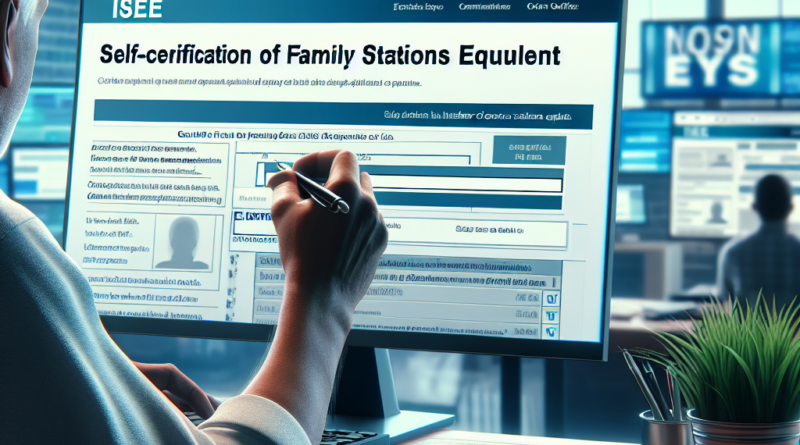Family Status Self-Certification for ISEE: Instructions and Downloadable PDF
“`html
Family Status Self-Certification for ISEE
The family status self-certification for the ISEE (Equivalent Economic Situation Indicator) is a crucial document for accessing various economic services and benefits.
This tool allows citizens to declare their family’s composition without the need for official certificates, significantly simplifying bureaucratic procedures.
Its significance parallels the services requiring it, with an increasing number of social benefits and tax incentives linked to the ISEE.
Understanding Family Status Self-Certification for ISEE
Family status self-certification is a declaration that enables citizens to autonomously attest to their family situation.
This legal provision allows individuals to replace traditional certificates issued by Public Administration with a statement signed by themselves, thus facilitating easier access to economic benefits.
The primary purpose of this self-certification is to streamline bureaucratic processes, enabling smoother access to essential services.
The Essential Elements for Self-Certification
One must provide key personal details including the name, residency address, and demographic information of all family members along with their relationships.
Misrepresentation can lead to serious legal consequences.
Importance of Self-Certification for ISEE
Self-certification is a pivotal component of the Single Substitute Declaration (DSU), which gathers personal and financial information necessary for calculating ISEE.
The DSU consists of two main parts: a Mini Model for general cases and a Comprehensive Model for detailed information.
Self-certification provides vital information for determining family composition, which is essential for ISEE calculations.
How to Fill Out the Self-Certification
Filling out the self-certification is relatively straightforward but requires attention to detail.
Key data includes personal identification and details about family composition.
It’s essential to ensure accuracy to avoid invalidation of the document.
Who Accepts Self-Certification?
Self-certification must be accepted by all public administrations and service providers.
Following recent regulations, even private entities must comply.
Submission Methods
You can submit your self-certification in person, via regular mail, fax, or electronically if allowed.
Always include a valid ID copy when submitting by mail or fax.
Validity of the Certification
Self-certification validity varies; for unchangeable states, it is limitless, while other certificates remain valid for six months.
With recent updates, citizens can now download civil registry certificates online at no cost from the ANPR portal.
Special Cases and Considerations
In specific scenarios, such as with unmarried parents or university students living away from home, extra care must be taken during self-certification.
Notably, enhancements in economic evaluations are available for families with disabled members, which impacts ISEE calculations.
Understanding these nuances ensures accurate representation and maximizes any potential benefits.
“`




